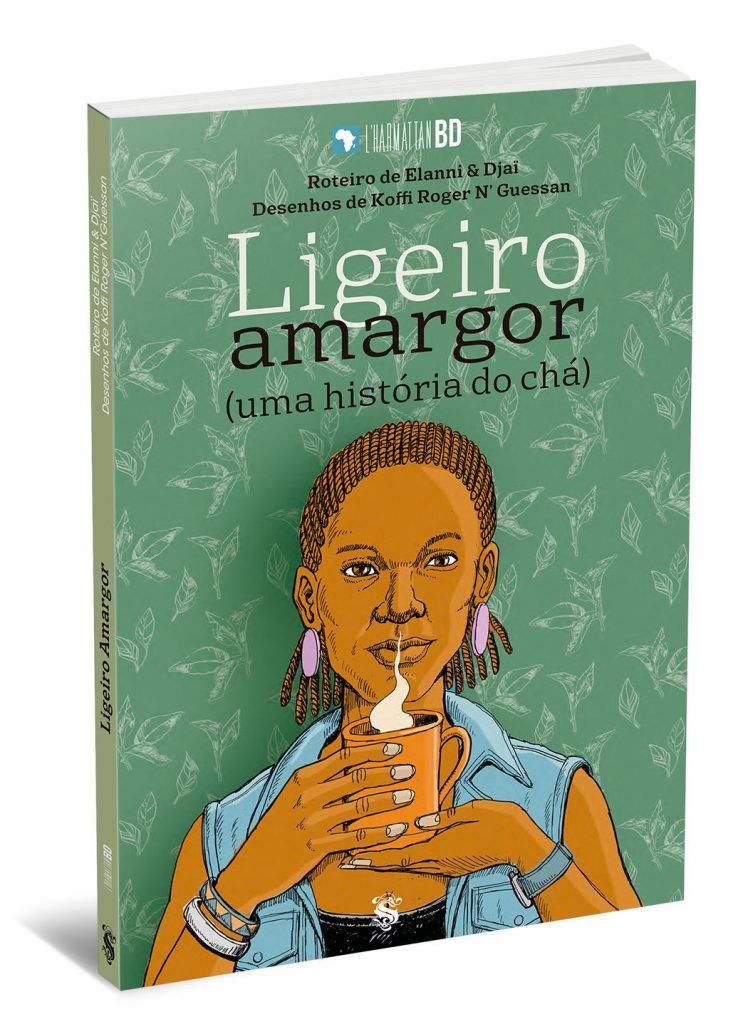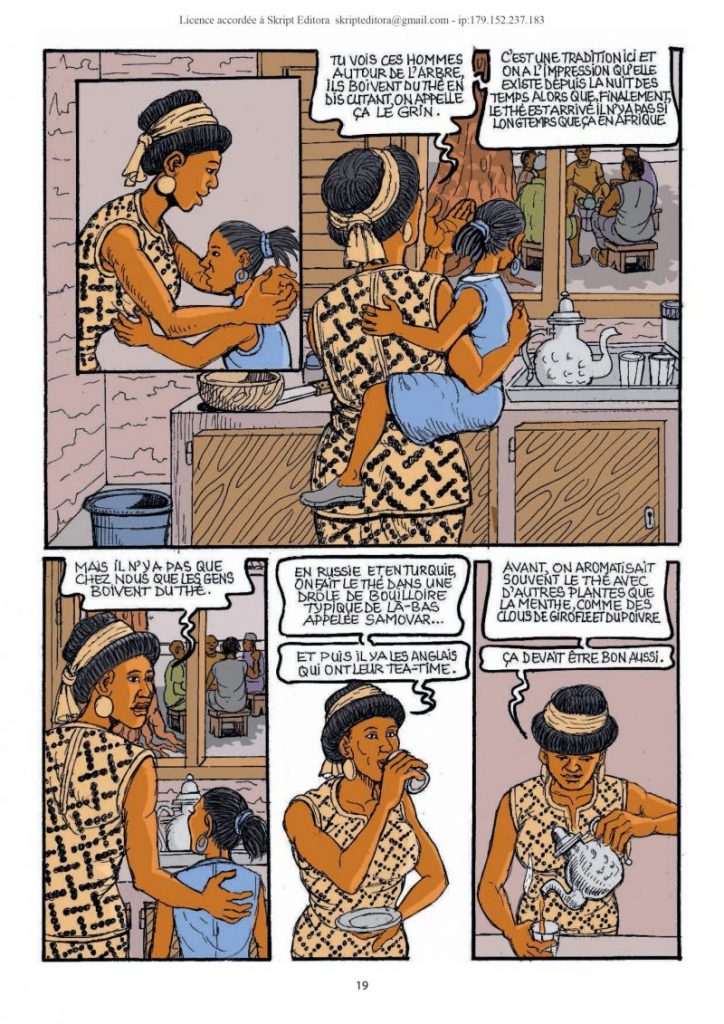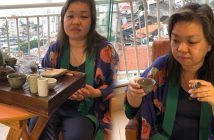Koffi Roger N’Guessan, is an acclaimed author from the Ivory Coast
When thinking about teas, the most obvious association we make is with the countries of the East, China and Japan, right? But what few people know in Brazil is that the African continent is a major producer of teas and that the drink is part of the local culture, especially in the eastern part of the continent.
And when you think about comics, American and European and, of course, Japanese comic artists come to mind with their manga. But did you know that the African continent produces remarkable comics as well? In general, African literature is little known in Brazil, despite our historical origins.
The union between comics and tea took place at the hands of Koffi Roger N’Guessan, an acclaimed author, illustrator and professor of fine arts in Côte d’Ivoire. And with the collaboration of Elanni and Djaï, writers from Mauritius and Madagascar, respectively, all tea lovers. Together, they were responsible for creating the comic entitled “Ligeiro amargor: uma história do chá” (Slight bitterness: a history of tea).
The original work was written in French and published by publisher L’Harmattan BD, within a traditional collection from France, which already has more than 40 titles, most of which are unknown to the Brazilian public.
In Brazil, editing and adaptation is by professor Marcio Rodrigues, from the Youtbe channel, African Comics. He is a doctoral student in History by the Postgraduate Program in Social History of the Amazon at the Federal University of Pará (UFPA) and Master in History by the Federal University of Minas Gerais (UFMG). Currently, Rodrigues is an interdisciplinary researcher in African and Afro-Brazilian Studies, where he idealized the line of research named Languages and Africanities. And the translation was made by Maria Emília Palha Faria, Master in Literary Translation from Université Lumière Lyon II.
The work is being financed by future readers, through the collective financing platform, www.catarse.me/cha. And, to date, it has already beaten the collection target by 231%. “This amount will be used for printing and copyright expenses,” comments SKRIPT editor, Douglas Freitas. The website is also offering the work pre-sale, which should be launched in July/August.
The founder of the Embahú Tea School, Yuri Hayashi (read the story here) signs the preface to the comic.
The African comics
“The work has drawn my attention because it is a fictional historical graphic novel and chronicle, with a very interesting poetic charge. Published in France two years ago, the comics transport the reader to the heart of several continents and eras, in the footsteps of a mystical, cultural and globalized drink such as tea,” says Marcio.

“Ligeiro amargor: uma história do chá” makes readers discover the history of tea in the world, from its discovery in Asia to its expansion in Africa through Adjoa, the protagonist. One curious fact is that her name corresponds to people who are born on a Monday, in the author’s native language, and that it is not by chance that this is the very name of his second daughter.
Brief spoiler
The comic tells the story of Adjoa, from her childhood, when her mother introduces her to tea. We know, through the character, how tea came to Africa from China and conquered the taste of people from different parts of the world. “One of its high points is treating the story with great accuracy. Wars, invasions and even espionage are a tasty part of the HQ,” she says enthusiastically.
An example is that, in the past, Africans did not use to drink tea, but consumed an infusion of mint or thyme and, thanks to the Moroccans, the rest of West Africa discovered the drink. “Tea came to Morocco at the hands of the Buckingham Duke, at the behest of Charles II, king of England, Ireland and Scotland, who would have gone to negotiate with Sultan Mulei Ismail for the release of British prisoners, in the chapter of history that became known as the Tanger episode. The prisoners were exchanged for a load of leaves from a plant that the Chinese had been drinking for millennia.
The production of teas on the African continent
“For several years, Africa has been offering all tea families: black, dark, smoked, purple, green, white and oolong. Currently, Africa has 12 tea-producing countries: Kenya, Malawi, Uganda, Burundi, Tanzania, Mozambique, Rwanda, Zimbabwe, Ethiopia, Cameroon, the Democratic Republic of Congo and Mauritius,” concludes Marcio.
Read here, exclusively, a small part of the HQ:

Ligeiro amargor: uma história do chá
Colored HQ, with 80 pages, 16X23 format, dog-eared double cover with varnish
Price: R$ 49.00
Pré-venda até 1 de maio no Catarse, www.catarse.me/cha.



